INTERNATIONAL INVESTMENT
AND PORTAL
In recent years, environmental, social, and governance (ESG) responsibilities have become a focal point for both governments and enterprises. The net-zero commitment has been driving companies to develop ESG frameworks and publish annual reports. ESG has also become a decisive factor when global conglomerates select their partners.
At the same time, Vietnam’s key export markets, including the US, Europe, and Japan, are tightening requirements on traceability, environmentally friendly production processes, and low-emission operations. Next-generation free trade agreements that Vietnam is part of, such as the EVFTA and CPTPP, alongside technical mechanisms like the EU’s Carbon Border Adjustment Mechanism, are imposing stricter standards that companies must meet to retain their foothold in global supply chains.
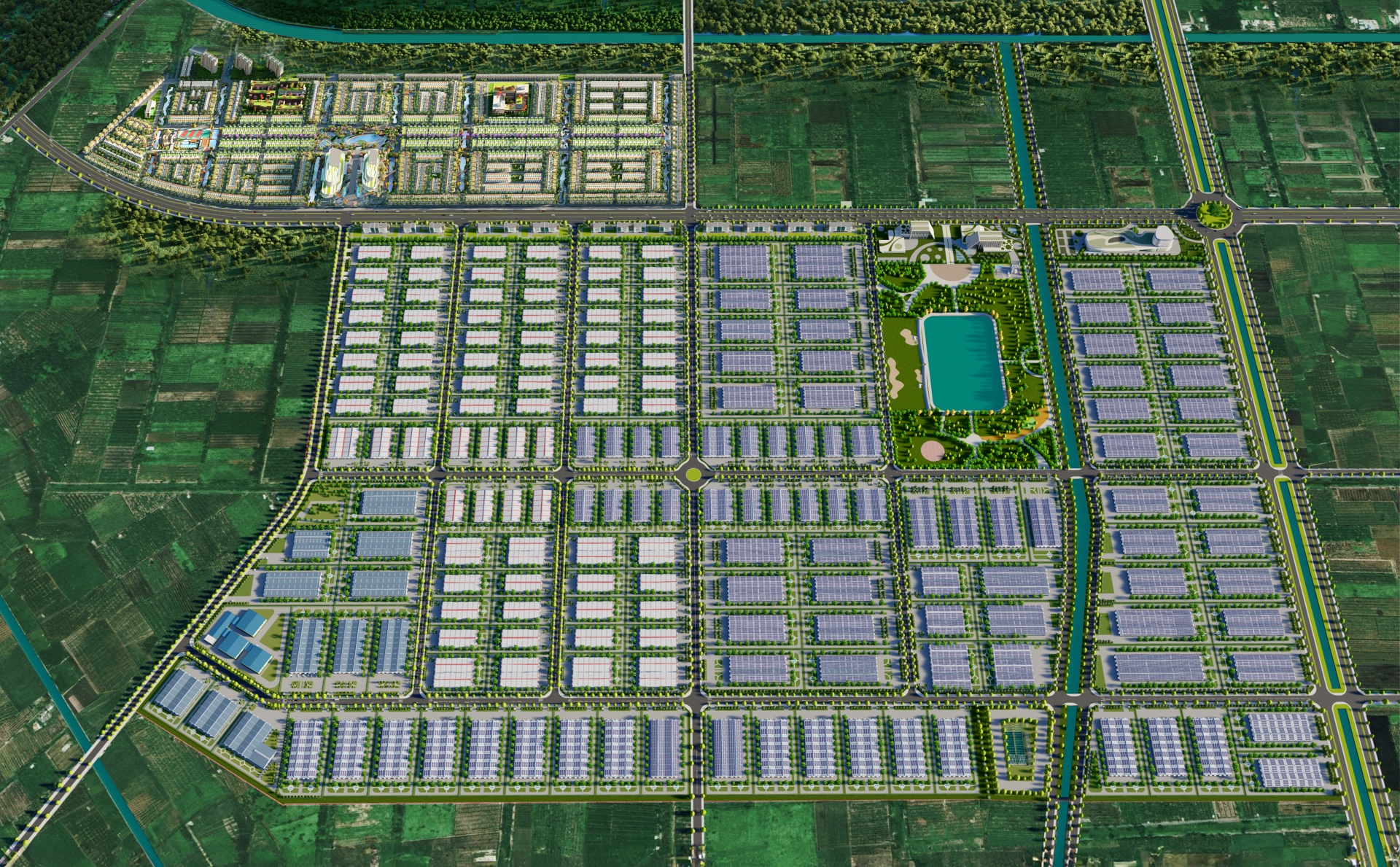 Prodezi Industrial Park has been developed with a strong ecological orientation to support investors in meeting the world’s evolving green benchmarks
Prodezi Industrial Park has been developed with a strong ecological orientation to support investors in meeting the world’s evolving green benchmarks
In pursuit of ESG goals, sustainable production solutions are gaining increasing priority. IPs developed with an ecological orientation, incorporating everything from integrated wastewater treatment systems and renewable energy use to resource-sharing models and liveable spaces, are becoming a strategic choice for forward-looking investors.
More than simply “greening” day-to-day operations, this model opens the door to true industrial symbiosis within the park itself, where waste and by-products are reintegrated into production processes, reducing both resource consumption and transportation costs. This approach lays a critical foundation for a sustainable circular economy, moving in step with corporate ESG commitments and aligning with the increasingly stringent green standards demanded by international markets.
With nearly 400 IPs currently operational across Vietnam, these zones form the backbone of the economy and remain magnets for foreign investment. Yet most still operate under traditional models that do not sufficiently meet the emission reduction needs of new-generation businesses. To address these greening demands, eco-industrial parks (EIPs) are emerging as standout destinations, offering distinct advantages.
Prodezi Industrial Park has become a prime example of a modern, sustainable IP model. Strategically located along Ring Road 3, which links Tay Ninh, Ho Chi Minh City, and the Mekong Delta, the project has been planned from the outset with ecological criteria at its core. Prodezi is integrating crucial features such as advanced wastewater treatment systems, renewable energy use, industrial symbiosis initiatives, and liveable spaces for workers. This model not only supports tenants in achieving ESG compliance but also reduces operational costs, keeping businesses aligned with the sustainability priorities of contemporary supply chains and encouraging long-term commitment.
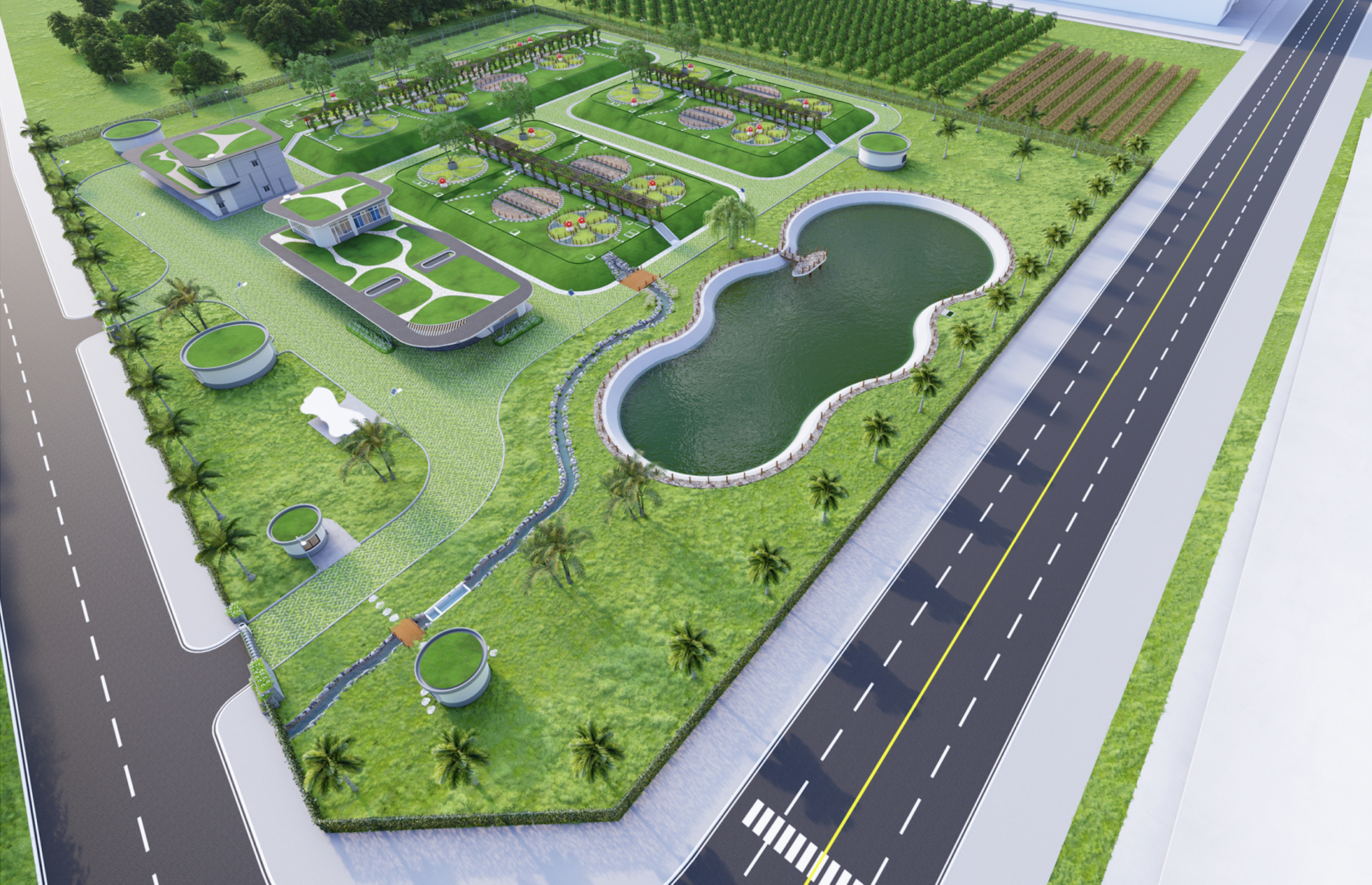 A rendering of Prodezi’s wastewater treatment model
A rendering of Prodezi’s wastewater treatment model
Underscoring this ecological orientation, Prodezi was recently named among the Top 50 Corporate Sustainability Awards at the 2025 CSA Awards, in the category of “Pioneering Waste Reduction.” The award recognises Prodezi’s adoption of advanced water and sludge treatment technologies, which enable water reuse and convert industrial sludge into organic fertiliser for agricultural use. The park’s wastewater treatment plant is designed with a capacity of up to 70,000 cubic metres per day, allowing for the recycling and reuse of 200 cu.m each day.
Meanwhile, the sludge treatment solution – developed in collaboration with Chitose Group of Japan – is expected to process around 6 tonnes of sludge per month in the initial phase, increasing to 33 tonnes per month in later stages. Once operating at full capacity, the system will be able to treat at least 80 per cent of industrial sludge, generating 340 tonnes of organic fertiliser annually, enough to be used on 17 hectares of farmland.
This initiative represents more than just a biotechnological breakthrough, it offers a tangible illustration of Prodezi’s sustainability drive. The composting units allow the entire waste decomposition process to be observed directly, while significantly reducing carbon emissions and cutting treatment costs compared to traditional incineration or chemical-based methods.
 Prodezi’s deputy CEO affirms that greening industrial parks is the foundation for sustainable industrial growth
Prodezi’s deputy CEO affirms that greening industrial parks is the foundation for sustainable industrial growth
“Our industrial park is not just an isolated infrastructure project; it serves as the foundation for an integrated ecosystem of production, logistics, and urban functions – all planned from the outset with green and sustainable development criteria,” said Truong Khac Nguyen Minh, deputy CEO of Prodezi. “Prodezi is proud to be a pioneer of a new generation of industrial parks – more synchronised in infrastructure, more efficient in operations, and more sustainable from an ESG perspective.”
The eco-industrial model in Vietnam is not only being driven by the sustainability goals of domestic and international businesses aiming to meet global supply chain demands, but is also being pulled forward by state policies and incentives. Resolution No. 68-NQ/TW, issued by the Politburo on May 4, outlines specific measures to remove obstacles and create favourable conditions for enterprises, including those in the industrial real estate sector, particularly EIPs.
Parks like Prodezi, which embed sustainability principles from the outset, are leading the transition towards green manufacturing. They are gradually creating a more resilient and sustainable investment environment, accompanying foreign direct investors in their emission reduction efforts, and helping them meet ESG benchmarks, an essential factor for boosting competitiveness and expanding market reach.
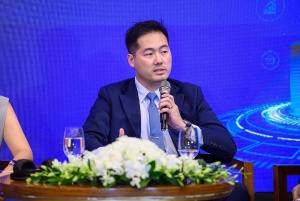 Prodezi Industrial Park emerges as green economic hub
Prodezi Industrial Park emerges as green economic hub
Standing out as a model for eco-industrial development, Prodezi Industrial Park is poised to boost growth in the green economy and become a strategic destination for global investors.
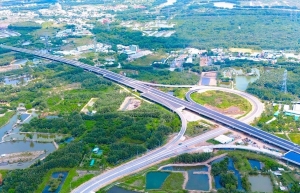 Long An and Tay Ninh lead push for sustainable industry in south
Long An and Tay Ninh lead push for sustainable industry in south
The planned merger of Long An and Tay Ninh provinces marks a major turning point for southern Vietnam’s industrial map, paving the way for a more modern and sustainable development model.
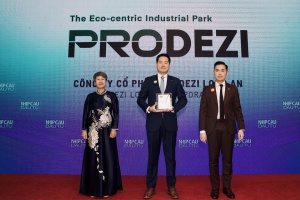 Prodezi named among Vietnam’s Top 50 Sustainable Businesses for 2025
Prodezi named among Vietnam’s Top 50 Sustainable Businesses for 2025
Prodezi Long An Corporation has landed a spot among the Top 50 Sustainable Businesses at the 2025 Corporate Sustainability Awards, recognised for leading the charge in waste reduction and eco-industrial innovation.



















